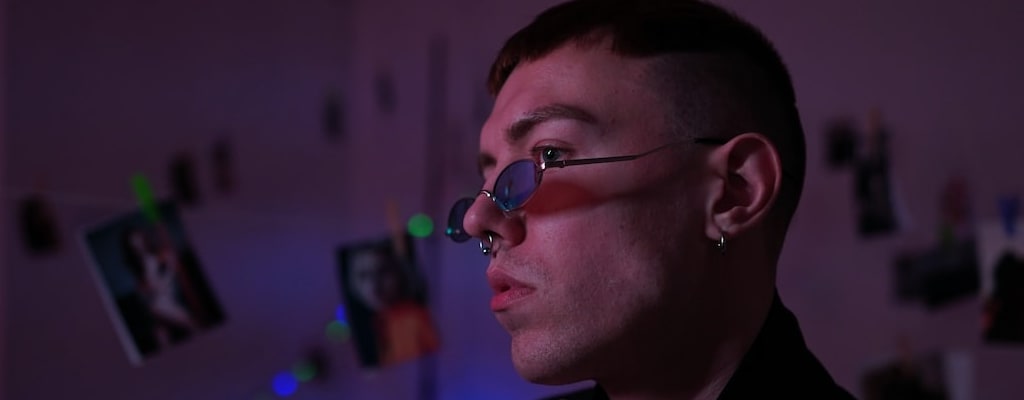old-fashioned look: Idiom Meaning and Origin
What does ‘old-fashioned look’ mean?
The idiom "old-fashioned look" refers to a traditional or outdated appearance or style that is reminiscent of the past. It implies a lack of modernity or contemporary relevance.

Idiom Explorer
The idiom "short on looks" is a colloquial expression commonly used in American English. It refers to someone who lacks physical attractiveness or is not considered appealing in terms of their appearance. The phrase implies a deficiency or scarcity in physical beauty. It is often used to describe individuals who are not considered particularly attractive.
The idiom "see things" means to perceive or experience something in a particular way, often different from reality. It implies a subjective understanding or interpretation of a situation or event.
The idiom "same old story" means a situation or story that is repetitive, familiar, and uninteresting due to its lack of change or variation.
The idiom "same old story" is a commonly used phrase in American English with a specific meaning. It refers to a situation or narrative that is repetitive, predictable, or unchanging. This idiom is often used to express a sense of frustration, boredom, or resignation.
An idiom often used to describe a person who is disliked or considered bad, with negative qualities or behavior.
One of the most popular idioms in English is "rotten egg." This phrase describes a person who is considered bad or unpleasant. The idiom originated in the early 19th century and is still commonly used today.
The idiom "pretty pictures" refers to visually appealing and attractive images or photographs. It is often used to describe something that looks nice or pleasing to the eye but lacks substance or depth.
The idiom "preserved in aspic" means something that is outdated or preserved in a way that hinders any changes or progress.
Preserved in aspic is a commonly used idiom in the English language. It comes from the culinary practice of preserving food in aspic, a transparent jelly made from meat or fish stock. This idiom is used metaphorically to describe something or someone that is old-fashioned, outdated, or unchanging.
The idiom "out of touch" means to be unaware or uninformed about a particular topic or the current situation. It implies a lack of understanding or familiarity with something or someone.
The idiom *old hat* means something that is old-fashioned, outdated, or no longer interesting or impressive. It refers to a hat that is no longer trendy or fashionable, suggesting that something has become clichéd or overused.
The idiom "old fogey" refers to a person, usually older, who is seen as old-fashioned, traditional, and resistant to change or new ideas.
The idiom "old fart" is a colloquial expression used to describe an elderly person who is perceived as being grumpy, curmudgeonly, or stuck in their ways.
Charming Nostalgia
The idiom "old-fashioned look" is commonly used to describe an appearance or style that resembles a previous era and is no longer trendy. When used in reference to a person's appearance, it typically describes someone who dresses or presents themselves in a way that evokes the past. This could involve wearing outdated clothing styles, hairstyles, or accessories, or even using manners and behaviors from a previous time.
Similarly, the idiom can be used to describe objects, such as furniture or interior design, that resemble styles from the past. For example, a room filled with antique furniture or decor could be said to have an "old-fashioned look."
The term "old-fashioned" has been in use since the early 17th century to describe things that are no longer in style. By adding "look" to form the idiom, it specifically refers to visual appearances that evoke nostalgia or a sense of being out of date.
When we say someone has an "old-fashioned look," we are often suggesting that their appearance is reminiscent of a specific time period or style that has fallen out of favor. This can be seen as a form of fashion expression, as individuals choose to embrace a different era's aesthetic instead of conforming to current trends.
An interesting related idiom is "look like." This phrase is used to say that someone or something bears a resemblance to someone or something else. In the context of the "old-fashioned look," we can say that someone "looks like" a person from a bygone era or dresses in a way that mirrors a specific historical period.
For example, if someone wears a dress and hairstyle reminiscent of the 1950s, we can say that they "look like" a person from that time. This emphasizes the visual aspect of the "old-fashioned look" idiom, highlighting the similarity between the individual's appearance and a certain period in history.
Another related idiom is "old fogey," which is used to describe someone who is old-fashioned or set in their ways. While the "old-fashioned look" idiom refers specifically to visual appearances, "old fogey" focuses more on a person's attitude and behavior.
However, there can be overlap between the two idioms. Someone who embraces an old-fashioned look in their appearance may also be seen as an "old fogey" if they hold traditional views or resist change. In this case, the idiom "old fogey" adds another layer to the understanding of the person's overall character and style.
A third related idiom is "look the part," which is used to describe someone who fits the role or matches the expectations of a particular situation or profession. This idiom directly connects to the concept of the "old-fashioned look" by suggesting that someone's appearance aligns with a certain time period or style.
For example, if an actor is playing a character from the Victorian era and they dress in period-appropriate clothing and hairstyles, we would say that they "look the part." This implies that their appearance accurately reflects the expectations and requirements of the role.
The idiom "old-fashioned look" allows us to appreciate and explore different aesthetics and historical periods through visual representation. It reminds us that style is not limited to the present and that nostalgia can play a significant role in how we present ourselves and our surroundings.
The idiom "old-fashioned look" is commonly used to describe an appearance or style that resembles a previous era and is no longer in fashion. It can be applied to both people and objects, indicating that they evoke a sense of nostalgia or a departure from current trends. The idiom "look like" further emphasizes the visual aspect of this resemblance, while the idioms "old fogey" and "look the part" provide additional insights into a person's character and how their appearance aligns with expectations. Overall, the "old-fashioned look" idiom allows us to appreciate the enduring appeal of different styles and the ability of fashion to transport us to different periods in history.
Example usage
Examples of how the idiom "old-fashioned look" can be used in a sentence:
- She decided to decorate her bedroom with vintage furniture to give it an old-fashioned look.
- The actress wore a beautiful lace dress to the premiere, creating an elegant old-fashioned look.
- With its classic design and black-and-white display, the new phone has an old-fashioned look that reminds people of retro technology.
More "Appearance" idioms

